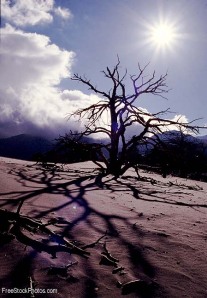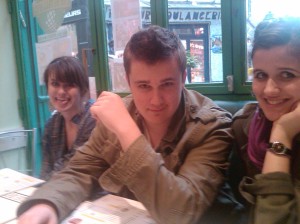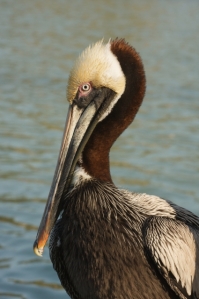STUMBLING ONTO JOY
 If you’ve lived long enough, or perhaps if you’ve just REALLY lived, you’ve been the giver of unconditional love a time or two. If you’ve been fortunate enough to be a parent, it goes with the territory. You give without ever asking or even thinking about asking for anything in return. The ones you truly love make mistakes (sometimes a lot of them) and you forgive them.
If you’ve lived long enough, or perhaps if you’ve just REALLY lived, you’ve been the giver of unconditional love a time or two. If you’ve been fortunate enough to be a parent, it goes with the territory. You give without ever asking or even thinking about asking for anything in return. The ones you truly love make mistakes (sometimes a lot of them) and you forgive them.
You love them as they are, at their very best and at their most challenging. And if it is the perfect kind of unconditional love, it means letting the other be most perfectly themselves. It is like water for the soul, helping it to blossom into what it is called to be.
When we love like this, we are not hoping that they fit an image, perhaps really just a mirror image of ourselves. Actually, when you come right down to the heart of the matter, the self has nothing to do with unconditional love. The self that cares so much about checks and balances, that wants to know “what have you done for me lately” always get stuck in this building we call the body.
When there is no clutching towards the self, no seeking to find something particular to and for us; we love joyfully and without hesitation.
 If you experience this kind of giving, you have been given a glimpse of heaven. In the Christian Bible, Jesus shares the Parable of the Hidden Treasure to explain how priceless this experience of real love is (Matthew 13:44), “The kingdom of heaven is like treasure hidden in a field. When a man found it, he hid it again, and then in his joy sold all he had and bought that field.” This is not to say that accepting another fully is without pain or is easy, but rather it is priceless. It is a wellspring.
If you experience this kind of giving, you have been given a glimpse of heaven. In the Christian Bible, Jesus shares the Parable of the Hidden Treasure to explain how priceless this experience of real love is (Matthew 13:44), “The kingdom of heaven is like treasure hidden in a field. When a man found it, he hid it again, and then in his joy sold all he had and bought that field.” This is not to say that accepting another fully is without pain or is easy, but rather it is priceless. It is a wellspring.
It seems most often in my life (and perhaps in yours), that I have stumbled upon these moments, have been gifted with the people I have loved unconditionally, and so it makes the joy even more precious as I did nothing to make them come about. They have come into my life, not as a payment earned, but as proof of grace.
The Sufi poet, Hafiz writes,
“Even after all this time, the sun never says to the earth, ‘You owe me’. Look what happens with a love like that, it lights the whole sky.”
 When you love freely, there is no end to how the spirit soars, no limit to how Love can expand.
When you love freely, there is no end to how the spirit soars, no limit to how Love can expand.
I was given this gift by father and it wasn’t his to keep, but to enjoy. I give this gift to my children and it isn’t mine to keep, but to enjoy. I know it is now theirs to take and enjoy.

![sb10066414y-001[1] (1)](https://nuntucksalmanac.files.wordpress.com/2011/03/sb10066414y-0011-1.jpg?w=298)




